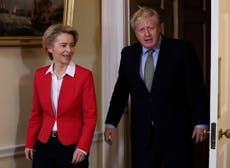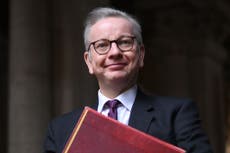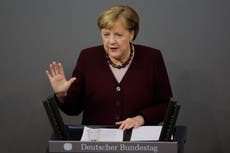Is Boris Johnson going to Brussels to get a deal or to show the public that he really did try his best?
Deciding the next steps for the UK after meeting with European Commission president Ursula von der Leyen this evening is likely to be a lonely process for the prime minister. Even his senior ministers do not know which way he will jump

How times change. Just before he became prime minister last year, pro-European Conservative MPs warned Boris Johnson not to opt for a no-deal departure from the EU. That once-dominant group in the party has all but died off, several of them exterminated when Johnson withdrew the Tory whip.
Today, noisy Eurosceptics are the ones putting Johnson under pressure. They claim they want an EU trade deal but will have a happy Christmas if there isn't one. In public, the hardline Brexiteers claim they trust Johnson not to sell them down the river. But they advertise their jitters by warning him not to do so.
Johnson should ignore these siren voices when he flies to Brussels tonight for what is billed as a make-or-break working dinner with Ursula von der Leyen, the European Commission president. The favourable interpretation of Johnson’s trip is that he still wants a deal, and would not be going if there is no chance of landing one. The less favourable version is that he is already resigned to no-deal, and is trying to limit the political damage by showing he tried hard to get one.
Both theories are doing the rounds at Westminster. In fact, they could both be true: Johnson might make a final offer on fisheries and the level playing field, see how the EU responds and then make his huge decision. It is likely to be a lonely process; even his senior ministers do not know which way he will jump.
The government’s decision to drop its threat to break international law by ignoring parts of the withdrawal agreement Johnson eventually struck, can also be read both ways. On the face of it, offering an olive branch amid rising pessimism in both camps about striking a deal is a positive sign, which might help Johnson and von der Leyen to give the process some much-needed political impetus. But the climbdown over the Internal Market Bill can also be interpreted as an insurance policy against no deal. It would take the highly sensitive issue of Northern Ireland out of the equation in the event of an acrimonious break-up. Crucially, it might limit Joe Biden’s criticism of no-deal.
The US president-elect would rather see a UK-EU agreement, but the island of Ireland is at the top of his Brexit concerns. Biden had warned that the Bill’s controversial clauses would scupper a US-UK trade agreement, a threat he can now lift. Brussels sources tell me they believe the Biden factor played an important part in the UK government’s move on Northern Ireland.
Johnson’s intervention comes very late in the day; if he had really wanted a deal, surely it would have happened earlier. Perhaps he is merely going through the motions before announcing the gulf between the two sides is unbridgeable. EU officials suspect the timing of tonight’s meeting reveals an attempt by Johnson to lob a diplomatic rock into tomorrow’s summit of the 27 EU leaders in the hope of exposing cracks in their united front. Germany is keener to avoid no-deal than France. But the UK’s attempt to play “divide and rule” hasn’t worked so far. It is unlikely to work this time either.
Although Eurosceptics fear Johnson will not protect their holy grail of sovereignty, he can afford to make some concessions. It would be crazy to opt for no-deal merely to preserve a theoretical right to diverge from EU standards on issues like workers’ rights and the environment when in practice the Tories would never want to. Johnson will champion tackling climate change next year - a chance for post-Brexit Britain to shine on the world stage and his ticket to a close working relationship with Biden.
Similarly, the UK’s political map has changed dramatically since the 2016 referendum. To win the next election, the Tories will need to retain the support of the working class voters in the red turned blue wall; it would be political suicide to dilute their rights at work. No-deal would hit manufacturing industry in the North and Midlands hard, and compound the UK’s economic hit from coronavirus.
In a no-deal scenario, Johnson would doubtless rally some his new voters behind him by playing the Brussels blame game. Yet their views are not the same as the European Research Group (ERG). A Savanta ComRes poll in 34 blue wall seats found that 32 per cent of voters would be less likely to vote Tory at the next election after no-deal, and 20 per cent more likely. Nationally, 38 per cent of the public want a deal and 21 per cent no deal.
The choice is Johnson’s: an ideological Brexit to play to the ERG gallery, or a pragmatic one to boost the Tories’ chances of retaining power.





Join our commenting forum
Join thought-provoking conversations, follow other Independent readers and see their replies